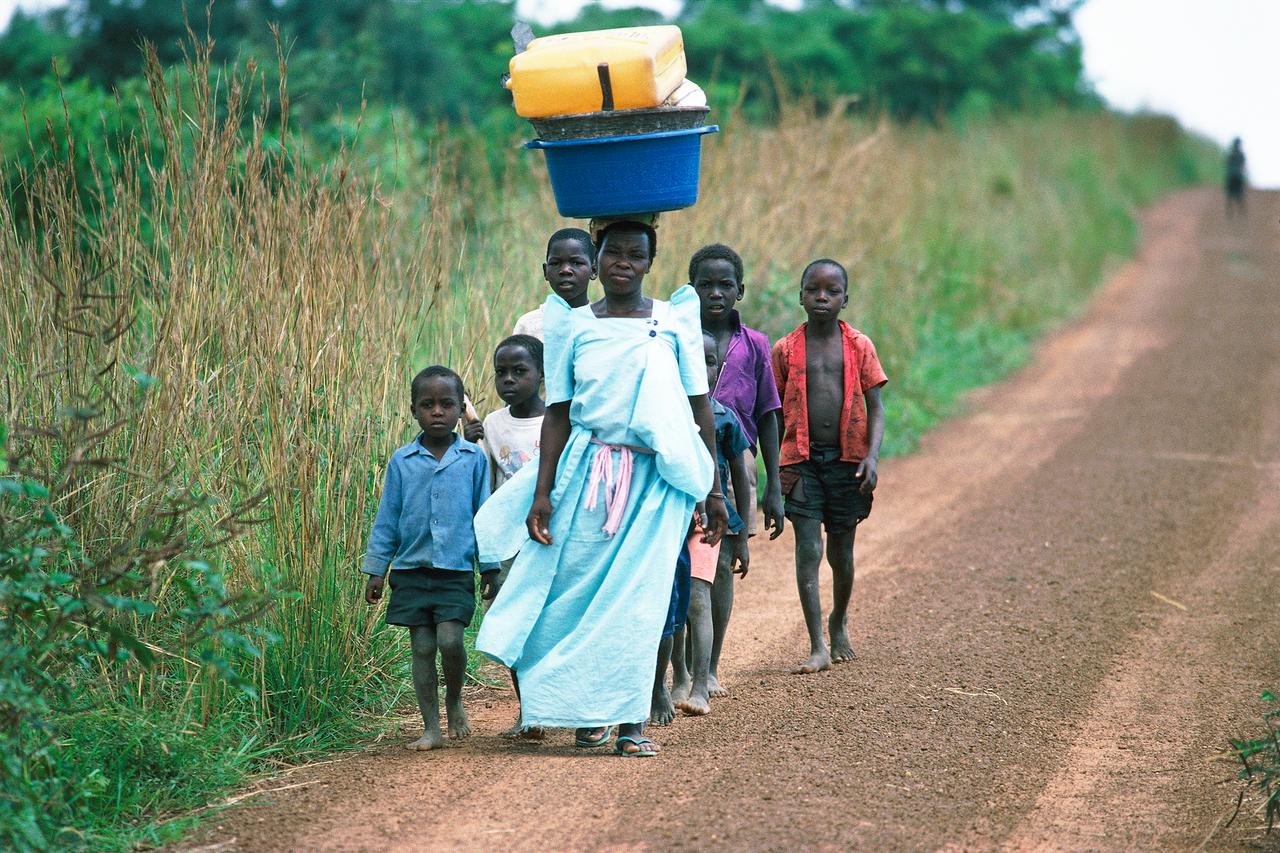
Insurance giant Marsh signs on for environmentally disastrous pipeline project
Four months after starting work at Marsh McLennan, a young woman stood up in a ballroom where hundreds of employees had gathered for an away day and asked what the company was going to do about its fossil fuel work. “There was a smattering of applause,” she recalls with a laugh, but no real answer.
It was her first job out of university and Rachel* was keen to use her position within one of the world’s largest professional services firms to make a difference: “If decisions made by big companies could somehow be changed to better prioritise environmental issues, that's how I can see impact happening at scale.”
Last year, Rachel and a number of her colleagues ratcheted up the pressure on their bosses. The Bureau can reveal that more than 100 Marsh McLennan employees signed a letter urging the company not to broker insurance for an oil pipeline project in east Africa that would have “disastrous consequences” for the climate.
The episode shines a light on the activism happening inside major companies, where younger, environmentally conscious employees are coming up against industry veterans resistant to the prospect of changing established business practices.
At Marsh McLennan, their pleas fell on deaf ears. Marsh, the conglomerate’s insurance broker – and the world’s biggest – bid for and won the contract to find insurers for the east African crude oil pipeline (EACOP), a huge and environmentally ruinous project expected to generate more than 33 million tons of carbon emissions each year. As well as threatening to derail vital targets set out in the Paris Agreement, the pipeline’s construction will likely uproot thousands of villagers in Uganda and Tanzania.
The pipeline – backed by the French oil giant TotalEnergies and the China National Offshore Oil Corporation (CNOOC) – will be built in a region where the devastating effects of climate change are already being felt.
“Climate change is with us,” said Prince Papa, Africa coordinator of the Laudato Si’ Movement, a Catholic climate charity. “The horn of Africa is experiencing drought and millions of people and animals are at the verge of starvation. This project will fuel these sufferings and the first to be affected are the immediate communities.”
Like the Adani coal mine in Australia, the EACOP project has become a battleground for campaigners seeking to stop insurers underwriting environmentally destructive ventures. Without insurance, such projects have little hope of raising funds. Papa said: “Investors are worried about the security of their investment. If there is no insurance of these investments then this project is dead.”
Marsh, which has previously pledged to support efforts to contain the climate crisis, is now recruiting insurers who are themselves coming under pressure to rule out working on the pipeline. A growing list of insurers and banks, including Axa, Munich Re and JP Morgan Chase, have already distanced themselves from a project whose implications could hardly be greater.
Uganda, which has been governed for a generation by an increasingly autocratic president, is seeking to tap its vast oil wealth. Activists who have opposed the pipeline say they have received death threats and been arbitrarily detained in the country’s brutal prisons.
At 1,400km long, the pipeline will slice through the habitats of elephants, giraffes and chimpanzees, and threatens to pollute Lake Victoria, which supports the livelihoods of more than 40 million people. A review of its environmental assessment warned that oil spills “will occur” as a result of the project.
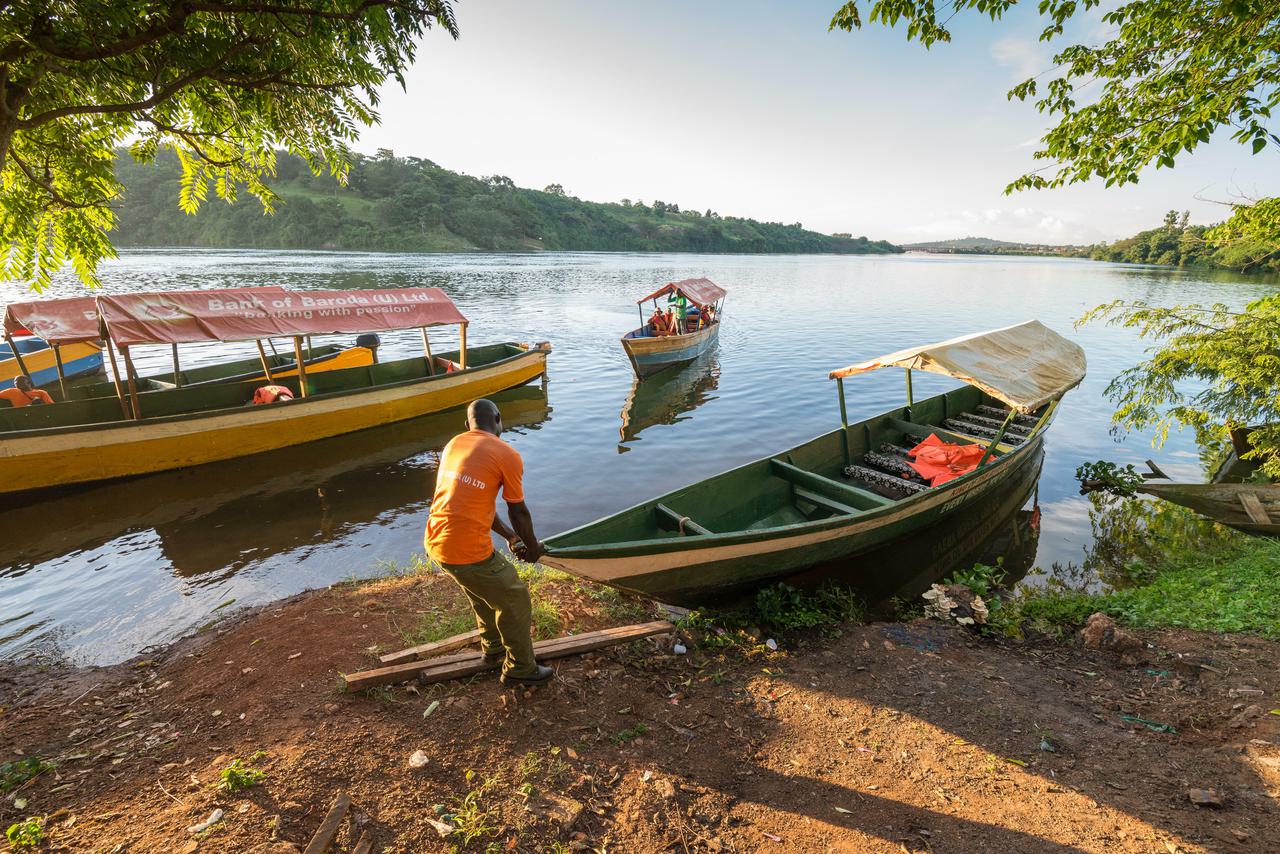
It is estimated that more than 12,000 households across Uganda and Tanzania have lost or will lose land because of the pipeline and compensation payments have been criticised as inadequate. Since land was assessed in 2018, villagers have been unable to either bury their dead or grow vital crops without permission from TotalEnergies.
Employee activism
In their letter to management, the Marsh McLennan employees wrote: “Insurers and insurance brokers essentially decide which types of projects can be built and operated – thus serving as risk managers for society as a whole. We believe that EACOP poses an unacceptable risk.”
Marsh McLennan has 81,000 employees and operates in 130 countries. Its subsidiaries include Mercer and Oliver Wyman, which offer advice on climate change as part of their consultancy work. In their letter, the employees asked: “Will clients trust us to provide climate risk management if they know we also support projects which worsen these very risks?”
Marsh McLennan’s president and chief executive, Dan Glaser, refused to rule out working on the project. He and John Doyle, president and chief executive of Marsh, said they did not have a “bright-line policy” against working with any individual company or industry. “We will continue doing the work ourselves to make Marsh McLennan a more sustainable company, including our pledge to be carbon neutral by 2021,” they added.
Rachel believes that is not enough. “We can't say that we're a sustainable company if we recycle our office paper but we facilitate insurance for fossil fuel projects that harm frontline communities and worsen the climate crisis,” she said. “We need to take an honest look at the real-world impacts of the work that we do every day at our desks.”
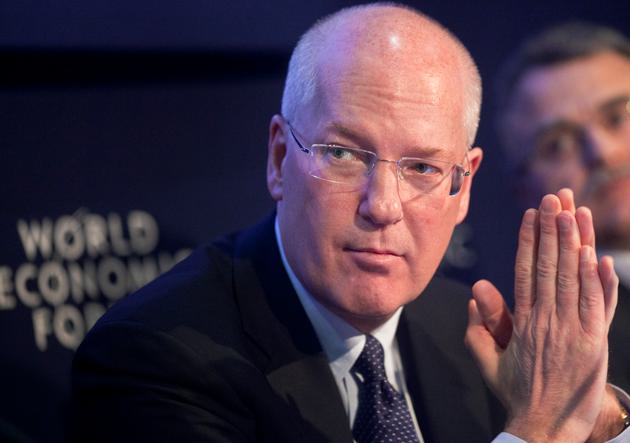 CEO Dan Glaser said Marsh McLennan has no policy against working with any one company
Simon Dawson / Bloomberg via Getty
CEO Dan Glaser said Marsh McLennan has no policy against working with any one company
Simon Dawson / Bloomberg via Getty
A spokesperson for Marsh McLennan told the Bureau it is committed to helping businesses develop low-carbon business models and manage risks associated with the transition to renewable energy. They said: “We recognise that a secure energy supply is crucial for the global economy and society as a whole.
“We believe all communities are best served by working with operators of clean energy assets to accelerate progress to a lower carbon world and with traditional energy clients to enable them to manage the risks associated with current projects and make the transition as quickly and responsibly as possible.”
They added that Marsh McLennan had a longstanding policy of not confirming the identity of its clients.
Insurance companies and brokers have fiercely guarded the secrecy of their involvement in contentious projects – even internally – to avoid scrutiny from campaigners, investors and their own employees. Last year, the operator of a tar sands pipeline in Canada went to court to remove the names of its insurers from the public record.
Stuart Palmer, head of ethics research at the fund manager Australian Ethical, said: “In the past [that lack of disclosure] has meant we’ve continued to invest in companies that we shouldn’t have invested in.” Australian Ethical sold its $3.2m investment in Marsh McLennan after Marsh refused to cut ties with Adani, following revelations it was the broker for the controversial coal mine.
Marsh McLennan developed client engagement principles after that episode and pledged to scrutinise new deals that might conflict with its commitment to climate change mitigation and other sustainable development goals. But Australian Ethical said the statement was “vague and lacked meaningful information about how the company would assess alignment with the Paris Agreement”.
Rachel said: “I would sincerely question any set of client engagement principles that would allow EACOP through as a project that upholds sustainable development goals.”
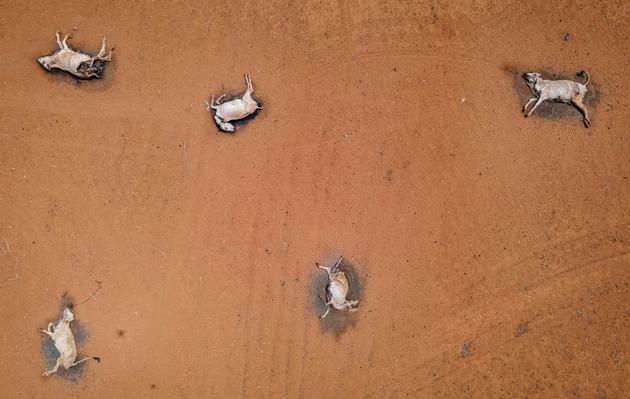 'Climate change is with us': livestock in Kenya lying dead after a drought
Ed Ram / Getty
'Climate change is with us': livestock in Kenya lying dead after a drought
Ed Ram / Getty
Human rights
There are also concerns over EACOP's potential implications for human rights and democracy in Uganda and Tanzania. Some NGO workers and journalists who have voiced opposition to the pipeline say they have been detained in cells for days before being released without charge.
Janepher Baitwamasa, human rights advocate at Navigators of Development Association (NAVODA), a Ugandan NGO, said she received death threats after her efforts to help communities affected by the project. Locals who have refused to sign away their land have reported similar threats and say they are afraid to sleep in their own homes for fear of reprisals from people linked to security forces.
In the view of Romain Ravet, regional director for eastern Africa at Avocats sans Frontières (ASF): “They are trying to send a message that the work activists are doing to monitor the development of the oil industry is off limits and if we ever go there they will repress us.”
ASF is calling for TotalEnergies to use its influence to help prevent these abuses. Ravet said: “They have tremendous leverage. They can be extremely clear that this cannot be done.”
A spokesperson for TotalEnergies told the Bureau it had developed a plan that “identifies the risks relating to human rights and local communities […] as well as the risks to human safety and the environment”. The company said operational emissions from its oil projects in Uganda were lower than the average for its portfolio.
CNOOC referred enquiries to TotalEnergies and declined to comment further.
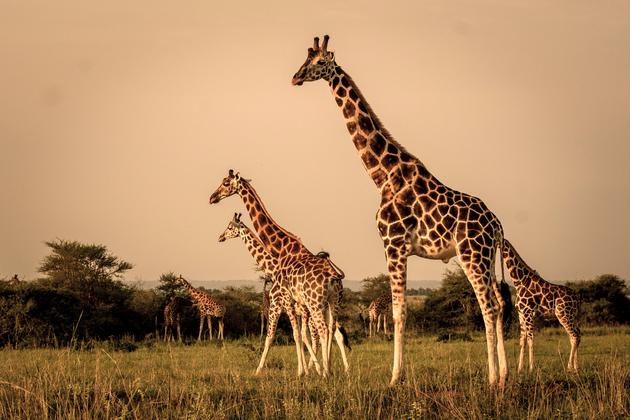 Giraffes at Murchison Falls national park, where the pipeline will run through
Giulio Origlia / Getty
Giraffes at Murchison Falls national park, where the pipeline will run through
Giulio Origlia / Getty
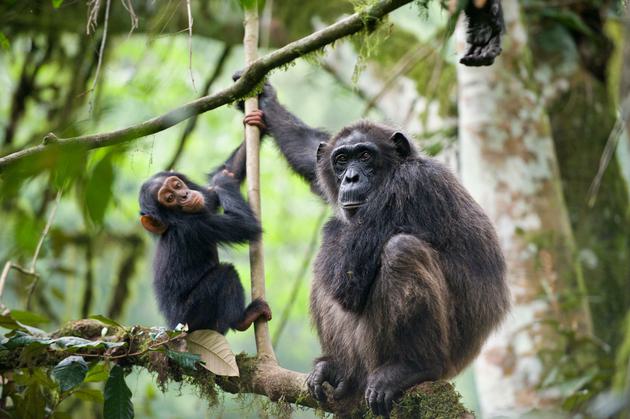 Uganda's chimpanzees are among the masses of wildlife threatened by the project
Nature Picture Library / Alamy Stock Photo
Uganda's chimpanzees are among the masses of wildlife threatened by the project
Nature Picture Library / Alamy Stock Photo
Uganda passed a law at the end of last year that means its agreement with TotalEnergies and CNOOC – much of which remains secret – would override some national laws. This grants the companies a 10-year exemption from income tax, and circumvents Ugandan laws that would ensure jobs and contracts go to local people and companies.
TotalEnergies and CNOOC will receive a larger share of the profits when oil prices are low, in effect passing some of the financial risks of the global energy transition to the Ugandan government, according to a report. TotalEnergies said EACOP would “create significant in country value for both Uganda and Tanzania”. The Ugandan government has also stressed the benefits of the project as a source of employment and a means for Uganda’s economy to develop.
“That is just rhetoric to guilt the western world into accepting the project,” said Diana Nabiruma from the Africa Institute for Energy Governance, an NGO focused on promoting clean energy. “There are greener and more sustainable options.” She points to Uganda’s plan for sustainable growth, which could deliver up to 4 million jobs and 10% growth in GDP by 2040 as well as cutting emissions.
Rachel, who has now left Marsh McLennan, said the project highlights the injustices of climate change. “These communities have contributed so little to the climate crisis but they will suffer the most from the construction of this pipeline, and the resulting climate change from burning the oil that it transports.”
*Name has been changed to protect anonymity
Header image: Villagers near Murchison Falls, Uganda, where the pipeline's route will begin. Credit: DeAgostini / Getty
Reporter: Josephine Moulds
Environment editor: Jeevan Vasagar
Impact producer: Grace Murray
Global editor: James Ball
Editor: Meirion Jones
Production editor: Alex Hess
Fact checkers: Alice Milliken and Elisângela Mendonça
Legal team: Stephen Shotnes (Simons Muirhead Burton)
This reporting is funded by The Sunrise Project. None of our funders have any influence over the Bureau’s editorial decisions or output.
-
Area:
-
Subject:





